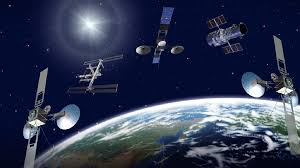Space Tech: Commercial Space Flights and Satellite Internet
The space industry is entering a bold new era where commercial space travel and satellite-powered internet are transforming humanity’s relationship with the universe. Private companies like SpaceX, Blue Origin, and Virgin Galactic are making space flights accessible to civilians, opening the doors to tourism beyond Earth. At the same time, advanced satellite networks are delivering high-speed internet to remote regions worldwide, bridging the digital divide and boosting global communication. This blog explores how modern space technology is shaping new economic opportunities, revolutionizing global connectivity, and bringing the dream of exploring the cosmos closer than ever before.

Space is no longer the exclusive domain of astronauts and government agencies. The 21st century has ushered in the era of commercial space technology, where private companies like SpaceX, Blue Origin and Virgin Galactic are leading a global push toward space tourism, lunar missions and interplanetary connectivity. The idea of ordinary people traveling beyond Earth is becoming more than a fantasy, with companies already successfully flying civilians into suborbital and orbital space. These missions aim to reduce the cost of space travel so drastically that within a few decades, boarding a spacecraft could feel as routine as taking a long-distance flight. The vision doesn’t end with thrill-seeking tourists—humanity is planning for lunar bases, Martian colonies and off-world resource mining to support future population growth and technology demands.
Meanwhile, communication is undergoing a revolution through satellite-powered internet. Traditional internet infrastructure requires expensive underground fiber cables and cell towers that often never reach remote areas. Low-Earth-orbit satellite systems such as Starlink, OneWeb and Amazon’s Project Kuiper are building global networks of thousands of satellites designed to deliver high-speed internet to every corner of the planet. This shift promises to eliminate the digital divide by connecting rural villages, ships, aircraft, military bases and regions impacted by war or natural disasters—places where communication was once impossible. Farmers will access smart agriculture tools, remote workers will stay connected from anywhere and developing countries will experience economic growth fueled by digital access.
Commercial space tech is also expanding scientific discovery and Earth monitoring. Satellites scan oceans, forests and weather systems in real time to predict climate change patterns and track disasters before they escalate. Cargo spacecraft resupply the International Space Station and return samples for research that could lead to medical breakthroughs and new materials. As more private companies join the space race, competition is accelerating innovation—driving down launch costs and inspiring young entrepreneurs to explore aerospace careers once considered inaccessible. However, this rapid expansion requires careful regulation to prevent space debris, protect the environment and ensure peaceful technological progress. The future of space is not somewhere far away; it is unfolding right now, building a new economy and connecting humanity in ways once seen only in the movies.